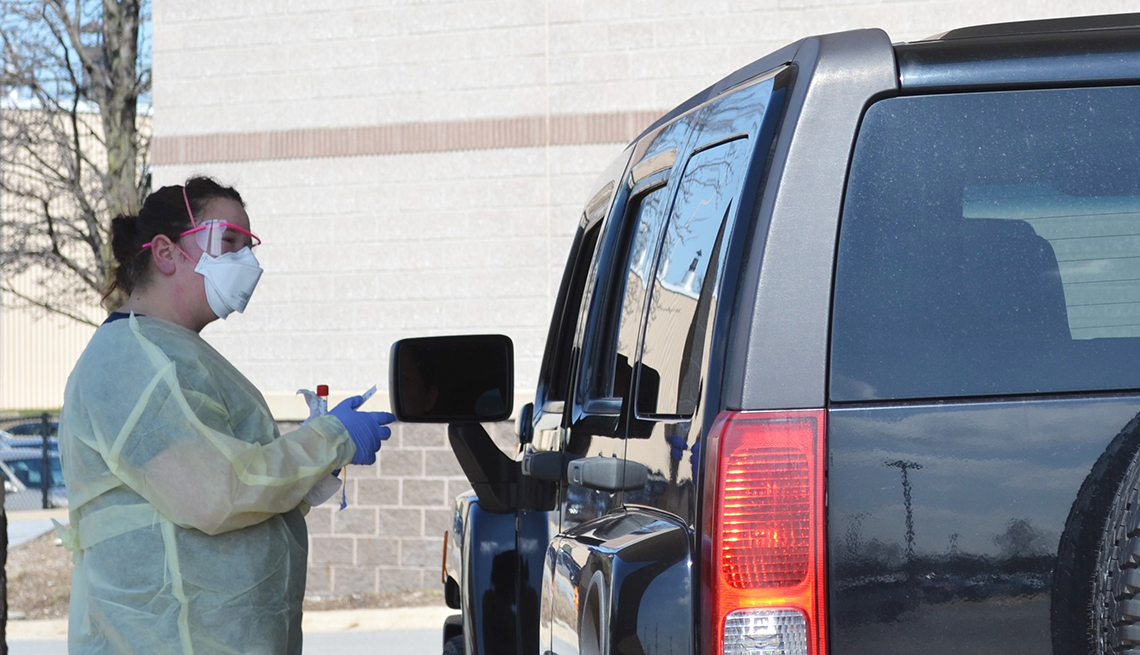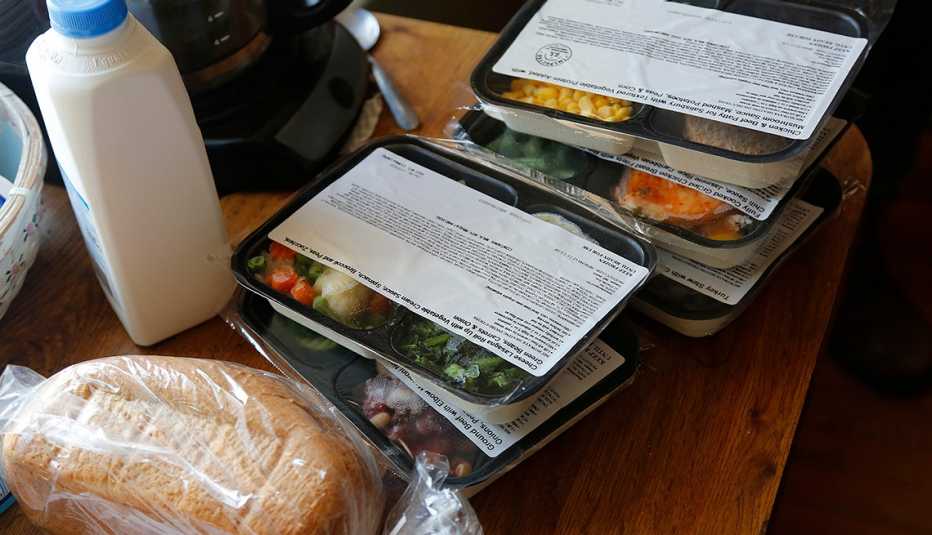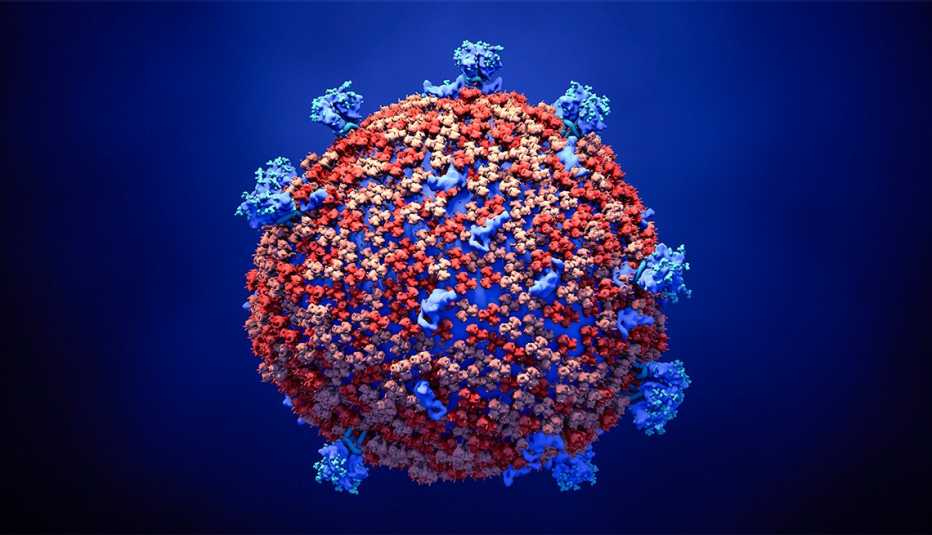Staying Fit
The first confirmed case of COVID-19 in the United States was in late January. The victim was in the state of Washington, a man in his 30s who had visited Wuhan, China.
The coronavirus has moved across America, striking every state and the nation's capital. Now, testing is ratcheting up coast to coast, but some patients with symptoms have been refused tests while others who have submitted specimens face long waits for results.


AARP Membership— $12 for your first year when you sign up for Automatic Renewal
Get instant access to members-only products and hundreds of discounts, a free second membership, and a subscription to AARP the Magazine.
In Indiana, for example, the first confirmed case was reported March 6, more than six weeks after the first diagnosis in the U.S.

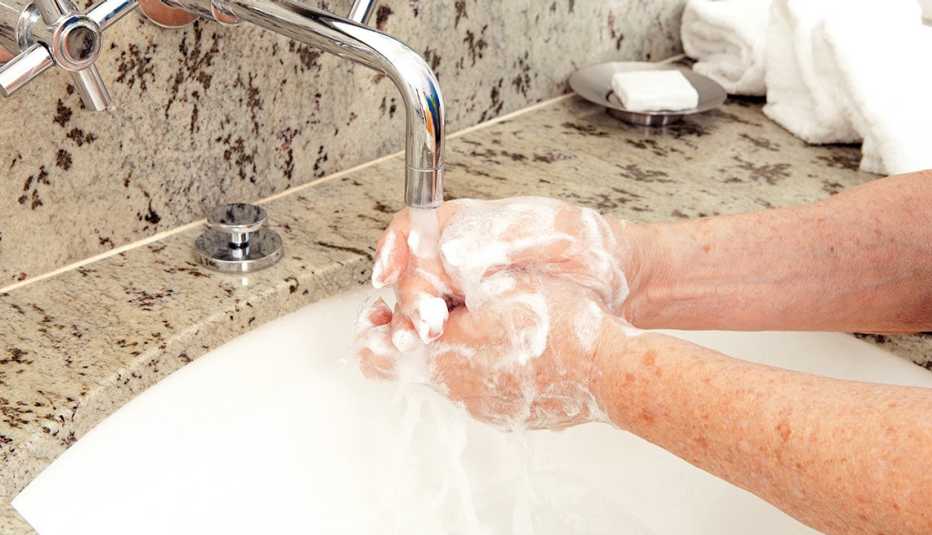
More on Coronavirus
As of Thursday, 380 tests had been administered in the Hoosier State, home to 6.85 million people. The state has had 56 cases, and its death toll stands at two.
This week in Crown Point, a suburban enclave in northwestern Indiana, a late afternoon line of cars and pickup trucks snaked around the entrance of Franciscan Health's emergency department.
Hospitals are following state and federal guidelines and asking patients not to come into hospitals or emergency rooms for testing; though some tests sites do not accommodate people under age 18, who are being allowed into emergency rooms to provide a sample of their saliva and mucous.
Steam rose from the engines idling in a cold rain as drivers patiently awaited the hospital nurses who were collecting specimens to test for COVID-19.

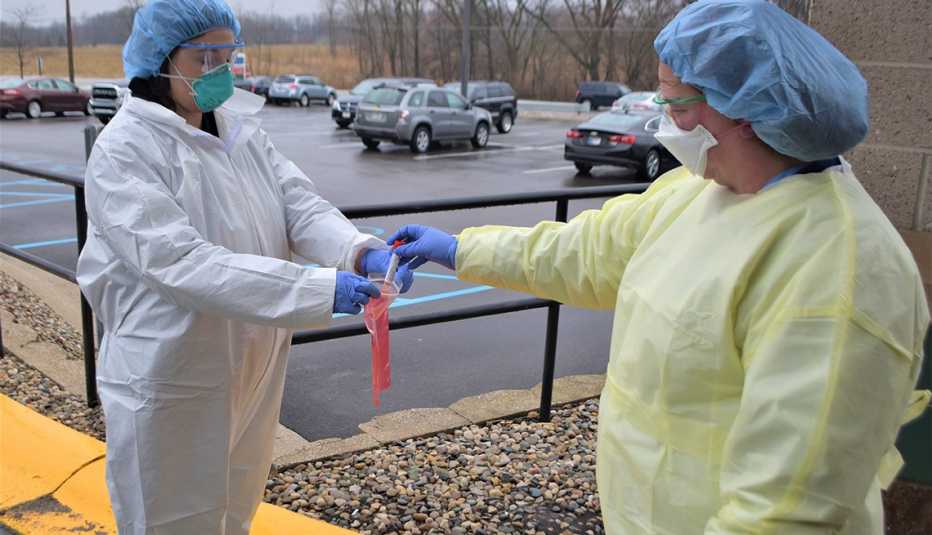
Nurses heavily protected
Jennifer Homan, 47, a nurse from North Judson, Indiana, wore a rainbow of protective garments and gear: white protective suit, blue latex gloves, yellow disposable isolation gown, gray surgical bonnet and green N95 respiratory mask. Her eyes were safeguarded by a clear plastic shield.



























































